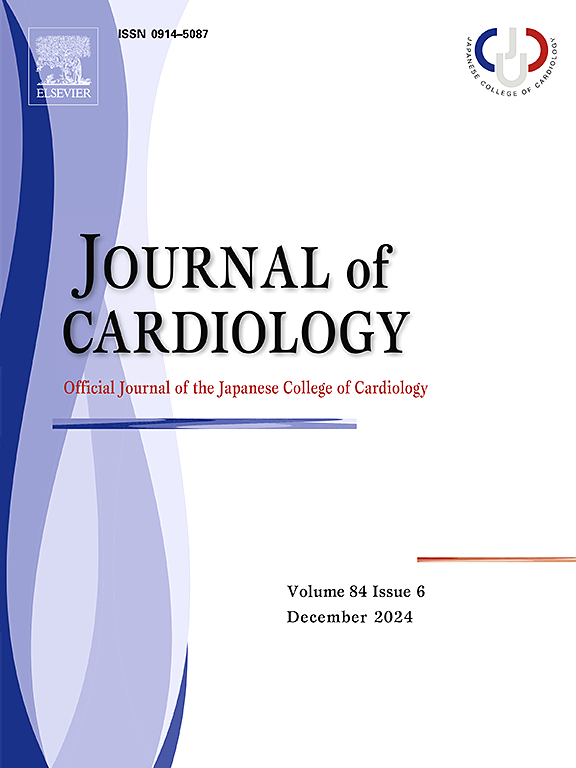Pathophysiology and management of adults with complex congenital heart disease after biventricular repair
IF 2.6
3区 医学
Q2 CARDIAC & CARDIOVASCULAR SYSTEMS
引用次数: 0
Abstract
Surgical management of congenital heart disease encompasses a spectrum of procedures, ranging from biventricular repair to univentricular palliation, each tailored to the specific anatomical and hemodynamic features of individual cases. Among these, biventricular repair, which preserves a functional ventricle to sustain pulmonary circulation, is prioritized whenever feasible. Advances in approaches have significantly improved outcomes, enabling many patients with congenital heart disease to reach adulthood, including the majority who have undergone biventricular repair. Despite these advancements, long-term complications—such as valvular disease, arrhythmias, heart failure, outflow tract obstruction, and dysfunction of extracardiac conduits—pose persistent challenges in the lifelong care of these patients. This review examines the distinct challenges and management strategies associated with adult patients who have undergone biventricular repair for complex congenital heart disease. The discussion focuses on key conditions, including repaired tetralogy of Fallot, transposition of the great arteries following atrial or arterial switch procedures, surgically managed or untreated congenitally corrected transposition of the great arteries with significant tricuspid regurgitation necessitating intervention, pulmonary atresia with intact ventricular septum, and Ebstein's anomaly. By addressing the long-term complications and therapeutic considerations unique to this patient population, this review aims to provide a comprehensive framework for optimizing care as these individuals transition into adulthood.

成人复杂先天性心脏病双心室修复后的病理生理学和治疗。
先天性心脏病的外科治疗包括一系列手术,从双心室修复到单心室姑息治疗,每一种手术都是根据具体的解剖和血流动力学特征量身定制的。其中,双心室修复,保留功能心室维持肺循环,是优先考虑的。方法的进步显著改善了预后,使许多先天性心脏病患者能够活到成年,包括大多数接受双心室修复的患者。尽管取得了这些进展,但长期并发症,如瓣膜病、心律失常、心力衰竭、流出道梗阻和心外导管功能障碍,对这些患者的终身护理构成了持续的挑战。这篇综述探讨了复杂先天性心脏病接受双心室修复的成人患者的独特挑战和管理策略。讨论的重点是关键条件,包括修复的法洛四联症,心房或动脉转换手术后的大动脉转位,手术处理或未经治疗的先天性纠正的大动脉转位,明显的三尖瓣反流需要干预,完整的室间隔肺闭锁和Ebstein异常。通过解决该患者群体的长期并发症和独特的治疗考虑,本综述旨在为这些个体过渡到成年期提供优化护理的综合框架。
本文章由计算机程序翻译,如有差异,请以英文原文为准。
求助全文
约1分钟内获得全文
求助全文
来源期刊

Journal of cardiology
CARDIAC & CARDIOVASCULAR SYSTEMS-
CiteScore
4.90
自引率
8.00%
发文量
202
审稿时长
29 days
期刊介绍:
The official journal of the Japanese College of Cardiology is an international, English language, peer-reviewed journal publishing the latest findings in cardiovascular medicine. Journal of Cardiology (JC) aims to publish the highest-quality material covering original basic and clinical research on all aspects of cardiovascular disease. Topics covered include ischemic heart disease, cardiomyopathy, valvular heart disease, vascular disease, hypertension, arrhythmia, congenital heart disease, pharmacological and non-pharmacological treatment, new diagnostic techniques, and cardiovascular imaging. JC also publishes a selection of review articles, clinical trials, short communications, and important messages and letters to the editor.
 求助内容:
求助内容: 应助结果提醒方式:
应助结果提醒方式:


